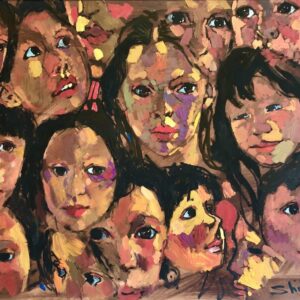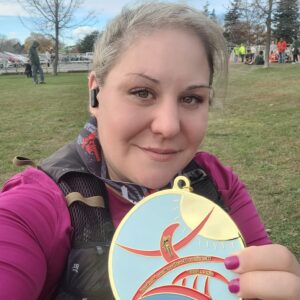
By Cynthia Wesley-Esquimaux, Ph.D.
It is with great humility that I write this short article on what has been a very difficult conversation in the City of Thunder Bay, Ontario. Since late 2015, the courts have heard testimony on the seven Indigenous children who died while attending school in Thunder Bay in an effort to determine what went so tragically wrong, and what we as a city and as a society could do better to ensure this never happens again.
Doing better in itself is hard to imagine given the state of the relationship between the Indigenous population and the rest of Canadian Society.
The continuing legacy of imposed colonial structures, the marginalization of reserves and their inhabitants, the lack of consistent educational experiences, and the vilification of Indigenous stewardship of the lands, has created the kind of impasse mere lip service will never eradicate. Lip service that has people saying, but not yet doing the kinds of things that keep kids safe, things that might heal a festering and historically based lack of understanding and appreciation of who Indigenous peoples are, what their cultures and traditions consist of, and why they continue to struggle in what is ostensibly a land of plenty.
The children from remote communities come to a city where they are at the mercy of a population of people who see them as representative of historical anomalies which have persistently depicted Indigenous peoples as standing in the way of development, living off “working peoples” tax dollars and steeped in alcoholic crisis and despair.
There remains a time worn rejection and blaming that teaches each new generation of the non-Indigenous that they somehow know who, “these people are” and that they have the right to judge.
Wrong, totally and unequivocally wrong.
The blinders society wears have to be removed and the injustices addressed and resolved. It is beyond time the general population of Canada does the kind of reflexive work required and begins to understand that spitting on young and vulnerable Indigenous youth is no way to build the kind of character and confidence any young person deserves. Assuming all Indigenous people are alcoholics or addicts and calling teenaged girls dirty Indians in the hallways of our local high schools is damaging, and shameful.
We must all step in and stop the kind of name-calling that kills incentive and breaks spirits. These are children, and no child can face down the kind of experiences these children have been subjected to in the streets and schools of Thunder Bay.
Friends of the children who died candidly testified to the kinds of hurtful experiences that drive some, but certainly not all, to drowning their sorrows in alcohol or drug use. Our children are no different than any other, they require kindness, a warm smile and a pat on the back for their efforts and positive achievements, but they cannot get there when they are fending off stereotypes and social rejection that cuts so deep many simply give up.
My academic background addressed the intergenerational implications of unresolved grief and trauma stemming from massive death from the epidemics at contact and through the Indian Residential Schools on Indigenous populations. I know how difficult it is to resolve something we may not personally understand.
Many of our parents and grandparents never shared the stories of abuse and sexual violence they experienced, some of them repeated it, some of them tried to drink it away, and some of them simply did not survive it. It’s the replication of those long-standing violence’s and traumas that keep some locked in generational addictions and pain.
This is something we can address so it doesn’t continue, but understanding of the genesis of this pain in necessary to create the change.
We do however, also have an incredibly talented and growing population of individuals who have found a way to rise above it, have earned an education, and now work in multiple industries, corporations, the arts, and in academia. You don’t always see those people, they don’t visibly live on the streets, or hang out at local bars, but I know, and you do, that it’s hard to miss those young brown faces. Especially because Thunder Bay doesn’t have a supported youth centre or downtown facility that accommodates Indigenous needs.
We all need to take responsibility for our biases and beliefs, we need to jettison those tired and dangerous stereotypes and realize that with awareness and respect, policy and practice can be amended to include, teach and incorporate everyone.
We need to be deeply conscious of what we say at the dinner table, control our facial expressions when we observe the less fortunate, the addicted, or the lost. Our kids and your kids are watching and they will do what we do, even if we think we haven’t expressed an opinion, because it is always there in our actions.
I have more recently been listening to the families and friends of the Missing and Murdered Indigenous women, girls, men and boys across Canada. The marginalization we have created in this country by allowing stereotypes and injustice to flourish in our towns and cities has contributed to the dismissive stance of our justice systems, and to the notion Indigenous peoples are somehow disposable and valueless in our society. Those families express how difficult it is for their children to thrive in a country where they feel and are treated as less than “human” and where they feel stifled by racism and hate.
The Inquest has taught us some valuable lessons about history, about attitudes, about fear and hate, and about how the expression of our collective humanity includes the need to work towards understanding and change.
The Truth and Reconciliation Commission tabled 94 “Calls for Action” to a country that needs to come together, to redefine our relationships with each other, and to move forward with all children valued as the future of our nation.
As an Honourary Witness for the Truth and Reconciliation Commission, you can call on me to walk the talk and bring people together, I hope we can join hands and hearts to ensure those seven children did not die in vain.
Miigwetch!






